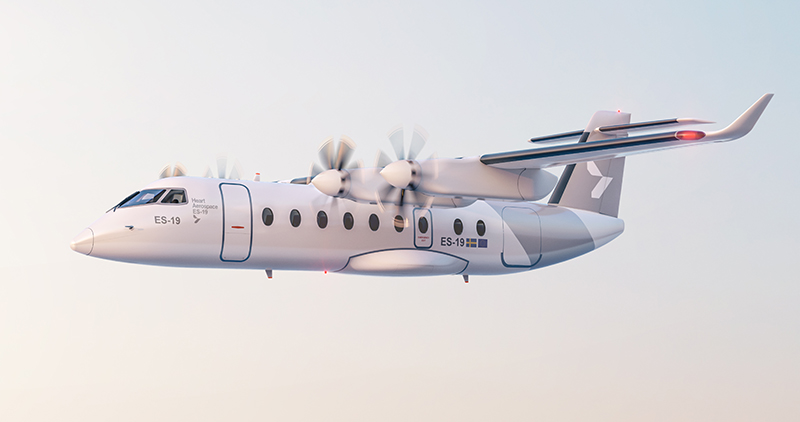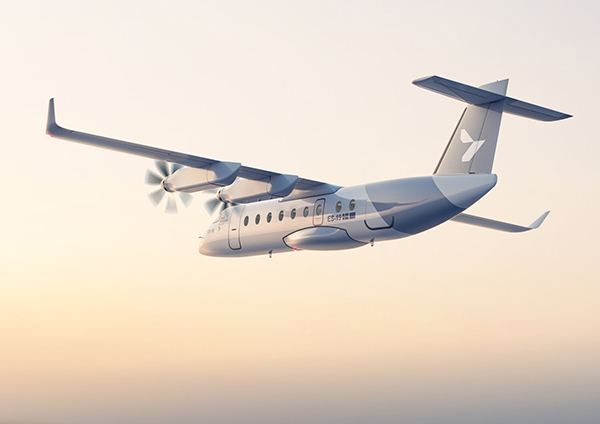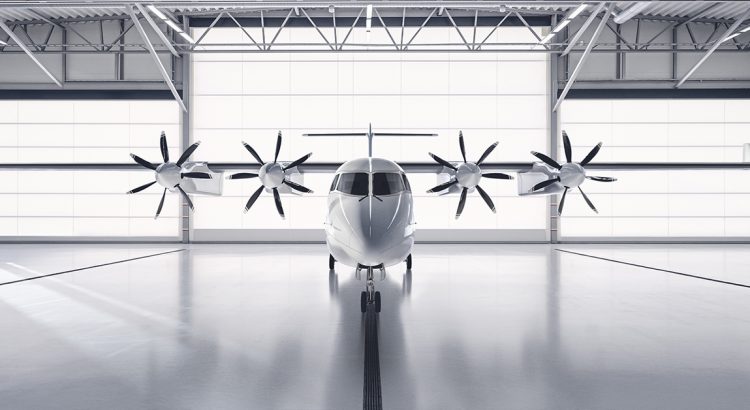Mesa Air Group, Inc. announced that it has made an investment in electric aircraft company, Heart Aerospace (“Heart”), a company that plans to be the first to produce the world’s first electric nineteen-seat ES-19 aircraft, alongside Breakthrough Energy Ventures and United Airlines Ventures. Subject to certain terms, Mesa also plans to add 100 ES-19 aircraft to its regional fleet, revolutionizing air service to small markets as one of the first network air carriers to help decarbonize air travel through the use of electric aircraft. This announcement expands on the efforts that Mesa has made in the emerging transition to electric-powered flight with airlines such as United Airlines – first with the announcement of an investment in Archer Aviation and its eVTOL aircraft, and now with the ES-19, a fully electric nineteen-seat regional aircraft.

“As we continue to explore opportunities in electric aviation, we are excited to expand our efforts to reduce the reliance on fossil fuels in the airline industry and are proud to work with Heart to launch the world’s first electric regional aircraft. Mesa intends to continue its expansion through the introduction of revolutionary technology that benefits our passengers and the environment. We are delighted to take this important step in the de-carbonization of air travel through our co-investment with Breakthrough Energy Ventures and United Airlines Ventures in Heart”, said Jonathan Ornstein, Chairman and Chief Executive Officer. “These technological innovations are good for the environment, will expand the national transportation system, and provide significant growth opportunities for Mesa. We look forward to reconnecting with communities and passengers we previously served.”
Anders Forslund, CEO of Heart, added, “Having Mesa as a partner will be an invaluable asset for us. They know the business of operating nineteen-seaters like few others, and they bring unique operational insights that we feed directly into the design of our plane. Mesa has decades of experience in operating nineteen-seaters, so we do not need to reinvent the wheel. We couldn’t be more excited about reconnecting America together with Mesa.”

Mesa was the world’s largest operator of 19-seat aircraft and has unparalleled expertise in connecting smaller communities to the national transportation system. Over the past 30 years, as the economics of operating 19-seat aircraft became uneconomic, operators exited markets and practically all 19 seat aircraft have been withdrawn from commercial service. For example, Farmington, New Mexico, a rural community bordering the Navajo Nation, previously had over 30 daily departures to 7 destinations. Today, Farmington has no scheduled passenger service. The reduced operating costs of the ES-19 aircraft hold the promise of revitalizing travel options that are currently not economically viable with traditional aircraft. Hundreds of communities will benefit from new or enhanced service, and hundreds of thousands of passengers can once again look forward to safe and reliable air transportation, with the added benefit of flying on an environmentally friendly zero-emissions aircraft.
Heart Aerospace aims to be the first to build electric aircraft for commercial passenger service. This 19 seater aircraft, the ES-19, is driven entirely by electric motors and batteries and is expected to have a range of approximately 250 miles. Based in Göteborg, Sweden, Heart Aerospace anticipates delivering the first ES-19 for commercial use by 2026. Importantly, due to the differences between turbine-powered aircraft and electric aircraft, the passenger experience onboard the ES-19 will be significantly improved over aircraft of the past. The ES-19 aircraft is quieter than its turboprop counterparts, with less vibration and noise. The low noise at taxi, take-off, and landing improves the experience not just for passengers, but also for those who live close to airports.




